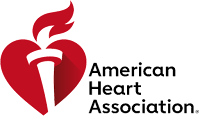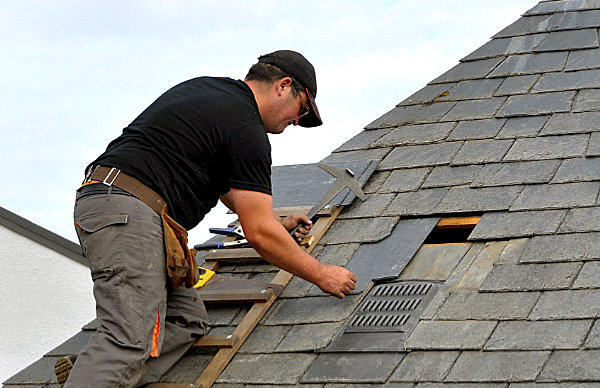
Affordable internet service in rural communities is limited now that government programs have ended, there are some options

Local news options for some rural Illinois communities are limited
 by Terri Dee
by Terri DeeIllinois News Connection
CHICAGO - The days of thumbing through a community newspaper are retreating into history.

Food banks in Illinois to receive USDA funding to combat low food inventories across the state
 by Terri Dee
by Terri DeeIllinois News Connection

While the holiday feast is plentiful for many, some people fear a lack of food access leaves them with little to celebrate.
The U.S. Department of Agriculture announced last week that food providers in predominantly rural, remote and underserved communities in Illinois and nationwide will receive an additional $500 million to purchase fruits, vegetables, and nuts to stock their pantries.
USDA Undersecretary Jennifer Moffitt said the state will receive millions.
"For Illinois," said Moffitt, "$28 million is going to the state of Illinois and will be distributed by the Illinois Department of Agriculture."
The $500 million is in addition to $1.5 billion in funding since 2022 for emergency food providers nationwide.
Moffitt said the funding is about connecting farmers and food with the Emergency Food Network to bring that product to local communities.
This will enable farmers to sell their products at a good price to food banks and pantries, grocery stores and restaurants.
According to the Greater Chicago Food Depository, around 12% of Illinois households faced food insecurity between 2021 and 2023.
The Northern Illinois Food Bank echoes the status of food pantries around the country. The need is growing, but supplies are not keeping up with the demand.
Food Bank Director of Media Relations Katie Herity said the organization is serving a record number of neighbors, so the USDA grant will help significantly.
"Last year, we served 90 million meals throughout our service area, which is 13 counties in rural and suburban northern Illinois," said Herity. "Donations have slowed down, and so we continue to reach out to help raise awareness and welcome all food donations."
Herity claimed that after the pandemic, the number of donations slowed but the number of neighbors reaching out for help increased - serving double the pre-pandemic level.
She said volunteers are crucial to the food bank's daily operations in helping food distribution.
Innovation is the key to improving health in rural areas
 Dallas, TX - Cardiovascular mortality is on the rise in rural areas of the United States, where more than 60 million Americans live, according to an American Heart Association presidential advisory. Understanding and addressing the unique health needs of people in rural America is critical to the Association’s pursuit of a world of longer, healthier lives.
Today — on National Rural Health Day — the Association, the world’s leading nonprofit organization focused on heart and brain health for all, announces two new collaborative efforts to help close the gap between rural and urban hospital care and bring equitable care to all, regardless of where you live.
“Addressing the unique health needs of people in rural America is critical to achieving the American Heart Association’s 2024 impact goal for equitably increasing healthy life expectancy nationwide,” said Karen Joynt-Maddox, M.D., MPH, American Heart Association volunteer, associate professor at the Washington University School of Medicine and co-director of the Washington University in St. Louis Center for
Advancing Health Services, Policy & Economics Research. “Innovative collaborations like these are key to improving rural health across the nation.”
Sharing clinical educational resources
The American Heart Association is collaborating with the National Rural Health Association (NRHA) to highlight and share cardiovascular and stroke clinical educational resources such as model practices, collaborative learnings and rural quality research findings with NRHA membership.
Through this collaboration, the American Heart Association will submit content for NRHA’s magazine Rural Horizons, weekly e-newsletter NRHA Today and Journal of Rural Health, as well as participate in NRHA’s 2024 Annual Rural Health Conference and 2024 Rural Health Clinic and Critical Access Hospital Conference.
“NRHA is excited to partner with the American Heart Association to share resources and education to help reduce rural cardiovascular health disparities,” said NRHA CEO Alan Morgan.
Harmonizing quality data for analysis and validation
The American Heart Association and the American College of Emergency Physicians (ACEP) are collaborating on efforts to resolve outcomes gaps and identify model practices for hospitals and health systems in the rural setting. This effort will identify sites participating in both organizations’ respective quality programs and cross-promote their data registries, as well as explore data harmonization and opportunities for shared data analysis and validation.
The Association and ACEP share common priorities in addressing outcomes gaps in rural areas and building the knowledge base needed for evidence-based clinical practice. Reaching clinicians and providers and other key constituents with important messages is foundational to these efforts.
ACEP’s E-QUAL stroke initiative strives to make stroke quality improvement strategies accessible for emergency departments of all shapes and sizes. The E-QUAL data submission activities have been designed to allow hospitals who are already participating in the American Heart Association’s Get With The Guidelines® programs to seamlessly meet all E-QUAL reporting requirements.
“Through ACEP’s E-QUAL stroke initiative, we strive to make stroke quality improvement strategies accessible for emergency departments of all shapes and sizes,” said Kori Zachrison, M.D., MSc, E-QUAL Stroke Initiative co-lead. “While many rural EDs may be working with fewer resources at their disposal, they remain the anchor of the community’s stroke chain of survival. We’re thrilled to work side-by-side with the AHA in investing in these communities.”
Dallas, TX - Cardiovascular mortality is on the rise in rural areas of the United States, where more than 60 million Americans live, according to an American Heart Association presidential advisory. Understanding and addressing the unique health needs of people in rural America is critical to the Association’s pursuit of a world of longer, healthier lives.
Today — on National Rural Health Day — the Association, the world’s leading nonprofit organization focused on heart and brain health for all, announces two new collaborative efforts to help close the gap between rural and urban hospital care and bring equitable care to all, regardless of where you live.
“Addressing the unique health needs of people in rural America is critical to achieving the American Heart Association’s 2024 impact goal for equitably increasing healthy life expectancy nationwide,” said Karen Joynt-Maddox, M.D., MPH, American Heart Association volunteer, associate professor at the Washington University School of Medicine and co-director of the Washington University in St. Louis Center for
Advancing Health Services, Policy & Economics Research. “Innovative collaborations like these are key to improving rural health across the nation.”
Sharing clinical educational resources
The American Heart Association is collaborating with the National Rural Health Association (NRHA) to highlight and share cardiovascular and stroke clinical educational resources such as model practices, collaborative learnings and rural quality research findings with NRHA membership.
Through this collaboration, the American Heart Association will submit content for NRHA’s magazine Rural Horizons, weekly e-newsletter NRHA Today and Journal of Rural Health, as well as participate in NRHA’s 2024 Annual Rural Health Conference and 2024 Rural Health Clinic and Critical Access Hospital Conference.
“NRHA is excited to partner with the American Heart Association to share resources and education to help reduce rural cardiovascular health disparities,” said NRHA CEO Alan Morgan.
Harmonizing quality data for analysis and validation
The American Heart Association and the American College of Emergency Physicians (ACEP) are collaborating on efforts to resolve outcomes gaps and identify model practices for hospitals and health systems in the rural setting. This effort will identify sites participating in both organizations’ respective quality programs and cross-promote their data registries, as well as explore data harmonization and opportunities for shared data analysis and validation.
The Association and ACEP share common priorities in addressing outcomes gaps in rural areas and building the knowledge base needed for evidence-based clinical practice. Reaching clinicians and providers and other key constituents with important messages is foundational to these efforts.
ACEP’s E-QUAL stroke initiative strives to make stroke quality improvement strategies accessible for emergency departments of all shapes and sizes. The E-QUAL data submission activities have been designed to allow hospitals who are already participating in the American Heart Association’s Get With The Guidelines® programs to seamlessly meet all E-QUAL reporting requirements.
“Through ACEP’s E-QUAL stroke initiative, we strive to make stroke quality improvement strategies accessible for emergency departments of all shapes and sizes,” said Kori Zachrison, M.D., MSc, E-QUAL Stroke Initiative co-lead. “While many rural EDs may be working with fewer resources at their disposal, they remain the anchor of the community’s stroke chain of survival. We’re thrilled to work side-by-side with the AHA in investing in these communities.”
Other Sentinel articles:


A matter of trust; why skepticism with COVID runs high in rural areas

Findley, whose husband died in an accident just after the local hospital closed, helps with the Elks and fundraising, and — like many people in this part of the country — doesn’t think covid-19 is that dangerous.
"I don't even know what I think about it," Findley said recently. "I don't know if I trust the testing because it's so messed up or … I've had nieces and nephews, that’ve had it. I've lost good friends to it, or supposedly it's to that."
Findley said she just isn't sure that every case reported as the coronavirus really is the virus: "Everything seems to be coronavirus. I mean, it's just … no matter what somebody has, it's coronavirus. I don’t know whether it is or isn’t."
Fort Scott is one of nearly 140 rural communities that have lost a hospital in the past decade. Mercy Hospital Fort Scott closed in December 2018.
Even though critically ill patients now must travel to hospitals farther away, Fort Scott residents haven't seen that as a pandemic-related problem. Rather, not having a hospital doesn’t really come up when people here talk about covid.
Dave Martin, the former city manager, is pretty sure he caught covid at work last August.
"You know, when I got it, I was in good health and it did take me a while to recover," Martin said. "I do remember waking up one of my bad nights and thinking, when I was running a temperature and not feeling very well. And I’m thinking, 'Oh, wow, this could kill me.'"
But Martin also thought that any number of unpredictable events could end a person’s life. "So it didn’t really stick with me," he said.
After recovering, the 62-year-old Martin went ahead with his retirement. He took his wife to Disney World and then they hiked Yellowstone National Park.
That casual attitude toward the dangers of covid worries health care leaders in Fort Scott. Jason Wesco helps lead the regional health center that took over primary care services when the hospital closed. One clinic occupies part of the same building that used to be Mercy Hospital.
Wesco said his family is careful about wearing masks and not gathering in groups, and he believes they are in the minority in the area.
"I think most people just keep going. They have maybe modified a little bit. Maybe they put on a mask in public," Wesco said. "I think life here has changed a lot less than it’s changed in D.C. And I think we’re seeing the impact of that, right?"
The pandemic hit the area hard in the fall, peaking in late December.
One in 11 people in Bourbon County, where Fort Scott is the largest community, has been infected by covid, according to national analysis.
Two dozen of the county's 14,000 residents have died of covid. And most people know someone who had the virus and survived — but residents just seem tired of talking about it.
Community volunteer Findley said she won’t get a vaccine.
"How did they come up with a vaccine that quickly? And how do they even know for sure it’s even working?" Findley wondered.
The three vaccines approved by federal regulators in the U.S. are being given out to millions, and their efficacy has been shown through massive clinical trials in the U.S. and globally.
But Findley's skepticism is fairly common in southeastern Kansas and across rural America. Nationwide, a smaller share of rural residents say they will definitely get a covid shot compared with their more urban counterparts. More than a third, 35%, of those who live outside big-city borders said they would probably not or definitely not get vaccinated, compared with about a quarter of suburban and urban residents, according to a poll by KFF. (KHN is an editorially independent program of the foundation.) An NPR/PBS NewsHour/Marist Poll found that 47% of Trump supporters said they would not get a vaccine; 75% of Bourbon County residents voted for Trump in 2020.
Factors such as age and occupation also play a role in attitudes toward the vaccines. And — as Findley and others in Fort Scott noted — rural Americans are more likely to think of getting a vaccine as a personal choice and believe the seriousness of covid is exaggerated in the news.
Findley said she believes that there is a very bad virus, but also that the media have brainwashed people. The news has "everybody running scared," she said. "I don’t know why they want to do that, but that’s what I feel like."
About 50% of rural residents say the seriousness of the coronavirus is generally exaggerated in the news, according to the KFF poll. And 62% see getting the vaccine as a personal choice — rather than a necessary social obligation.
Wesco, executive vice president of the Community Health Center of Southeast Kansas, said he has hope more area residents will begin to see the vaccines as necessary.
"There’s hesitancy," Wesco said, adding that he believes hesitancy is declining as vaccines become more abundant.
When residents are directly provided the opportunity to get a vaccine, they consider it more seriously, he said. And the more people they know who have gotten a vaccine, the more likely they will be to get a shot.
The Community Health Center, like other health centers nationwide, is receiving direct federal shipments of vaccines. Currently, the clinic has a waitlist and is giving out as many doses as it can get its hands on.
Sarah Jane Tribble is reporter and host of "Where It Hurts", a narrative podcast created by KHN and St. Louis Public Radio about the people of Fort Scott and how their health care transformed after the hospital closed. "Where It Hurts" is available wherever you get your podcasts.
Subscribe to KHN's free Morning Briefing.
More Sentinel Stories



Photo Galleries





